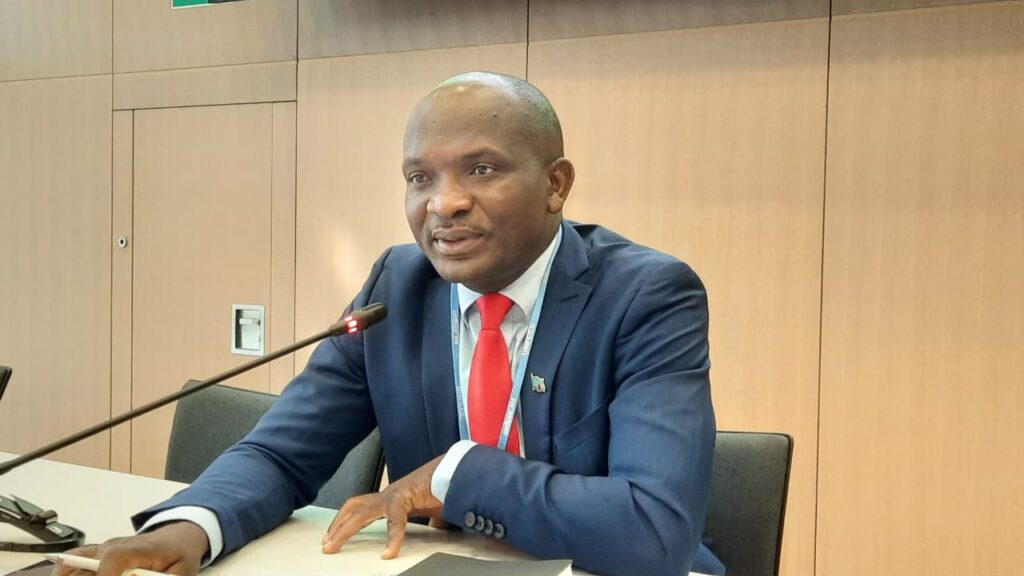
The African Group of Negotiators (AGN) has expressed disappointment over the lack of decisive progress on the finance for climate action track of the ongoing negotiations at the June 2023 Bonn climate talks.
The Group in statement issued by its Chair, Ephraim Mwepya Shitima, expressed serious concerns with attempts by some developed country Parties to divert their obligations of delivering financial resources to support the implementation of climate action to focusing on identifying the nature of financial flows.
“This is different from providing and mobilizing support to developing countries which is an obligation as provided in Articles 9.1, 9.3 and 9.5 of the Paris Agreement,” the Group stated.
According to the Group, which comprises negotiators from all African member states to the United Nations Framework Convention on Climate Change (UNFCCC), the delivery of climate finance will assist developing countries to rightly transition to low-emission and climate-resilient economies.
“What we have noticed so far is that the discussion on the redirection of financial flows opens the door to diluting responsibilities and allowing for greenwashing and limits the implementation of NDCs,” Shitima added.
“The African Group calls on Developed Countries to deliver and restore trust in the UNFCCC process. The GCF replenishment in October 2023 is an opportunity for Developed Countries to show the world that they are willing to do their part; to address climate change and support climate action in Developing Countries,” the statement averred.
The Group equally stressed that the New Collective Quantified Goal on Climate Finance (NCQG) discussion requires a political milestone decision at COP28 to assess the work done up to now and agree on key deliverables at COP29, including the quantum for the goal informed by the needs assessment report of the Subnational Climate Fund (SCF) that affirms that developing countries require close to 6 trillion to implement their NDCs by 2030.
It would be recalled that Dr. Sultan Al Jaber, the President -Designate for COP28 in his remarks at the opening of the Bonn talks highlighted the importance of delivering the obligations on finance. “The need for urgency cannot be overemphasised as promises made over 10 years ago are yet to be fulfilled,” Al Jaber said.

Reacting on this wavelength, Akin Adesina, President of the African Development (AfDB) stated that climate change is costing Africa $7–15 billion in losses annually and this is projected to rise to $50 billion by 2030.
“Yet, the resources that Africa needs are not there. The continent receives just $30 billion annually in climate finance, while it needs $2.7 trillion to meet its climate finance needs between 2020 and 2030. The challenge for Africa is to adapt to climate change. Here again, financing for climate adaptation is low, estimated at only $3.5 billion-$7.5 billion per year,” Adesina said.
The African Development Bank boss further averred that the bank is mobilising $25 billion for its African Adaptation Acceleration Program, jointly with the Global Center on Adaptation, to support countries.
“We pledged to commit 40% of our total finance to climate finance; we have exceeded that as we devoted 45% of our financing for climate last year. Similarly, the Bank devoted 67% of its total climate finance to climate adaptation, far exceeding the 50:50 parity between climate adaptation and mitigation called for by the UN Secretary General.
The Climate Action Network (CAN), in its response, confirmed that for most developing countries, there is a genuine challenge when it comes to financing climate action. With limited resources, many are already forced to choose between paying for mitigation and adaptation or paying to address loss and damage. Or between mitigation and schools or hospitals. This is the reality for many of our countries, the network stated.
“Developing countries have written their NDC climate plans. But the promised money to implement them simply hasn’t materialized. Developed countries’ failure to meet the already-grossly insufficient US$100bn target, and to provide mostly loans instead of grants, means that action on mitigation is already in trouble. And trust is at breaking point,” CAN added.











